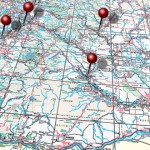Sen. Curtis King, the Republican leader on the Senate Transportation Committee, today unveiled a plan to make nearly $23 billion in transportation investments statewide without any tax or fee increases.
“There are important transportation needs throughout Washington that need to be addressed soon,” said King, R-Yakima. “This proposal funds many of those, including new highway projects, maintenance and preservation projects, fish-barrier removal, ferries, transit, rail and other modes. Best of all, this plan does not include any tax or fee increases, so people across our state who are struggling with inflation won’t have to pay more to have a better transportation system.”
Details of King’s $23 billion transportation funding proposal can be viewed here.
The plan uses many of the same funding sources in the package released by Democratic transportation leaders a few weeks ago, including:
- $5.4 billion expected from the Climate Commitment Act;
- $3.4 billion from the federal government’s new surface transportation reauthorization; and
- a $2 billion one-time transfer from the state operating budget.
The key difference between King’s proposal and the Democrats’ plan is how his plan would shift half of the state sales-tax revenue from car and truck sales in Washington, starting in 2023. This shift in vehicle sales-tax revenue is expected to generate $12.188 billion over the 16-year span of the package.
“In the past few years, some of my Senate Republican colleagues and I have advocated for using some of the tax money from vehicle sales for our highway needs, and the case for that approach is stronger than ever now. There is a connection between tax revenue from vehicle sales and transportation, so it makes sense to use that money to address transportation needs in our state,” said King.
King’s plan includes funding in several transportation areas:
- $6 billion for maintenance and preservation projects in the state.
- $4.16 billion for new highway projects, including $1.2 billion for replacing the Interstate 5/Columbia River Bridge between Vancouver and Portland, $640 million for State Route 18 widening, $300 million for the U.S. Highway 2 trestle project, $244 million for I-5 high-occupancy vehicle lanes, $210 million for the I-5 Nisqually Delta project, $240 million for a U.S. Highway 12 project between Pasco and Walla Walla, and $180 million for a new Hood River Bridge over the Columbia River between Washington and Oregon.
- $1.8 billion toward existing highway projects, including $460 million for Interstate 405 corridor construction, $520 million for a State Route 520 project, $155 million for an Interstate 90 project at Snoqualmie Pass, and $434 million for the SR-167/SR-509 Puget Sound Gateway project.
- $2.435 billion for fish-barrier removal projects.
- $150 million for freight rail projects.
Under King’s plan, the $5.4 billion in Climate Commitment Act funding would be used to pay for additional multimodal funding, including the construction of five new hybrid-electric ferry vessels. The plan also includes, from other sources:
- $500 million for transit programs and projects.
- $440 million for ferries.
- $190 million for “active transportation projects,” including $100 million for “safe routes to schools” projects and $90 million for a bicycle and pedestrian grant program.
King unveiled his transportation funding plan during a virtual news conference today. He was joined by Senate Republican Leader John Braun of Centralia. The news conference can be viewed here.










 More people in Washington will have a chance to be heard now that
More people in Washington will have a chance to be heard now that